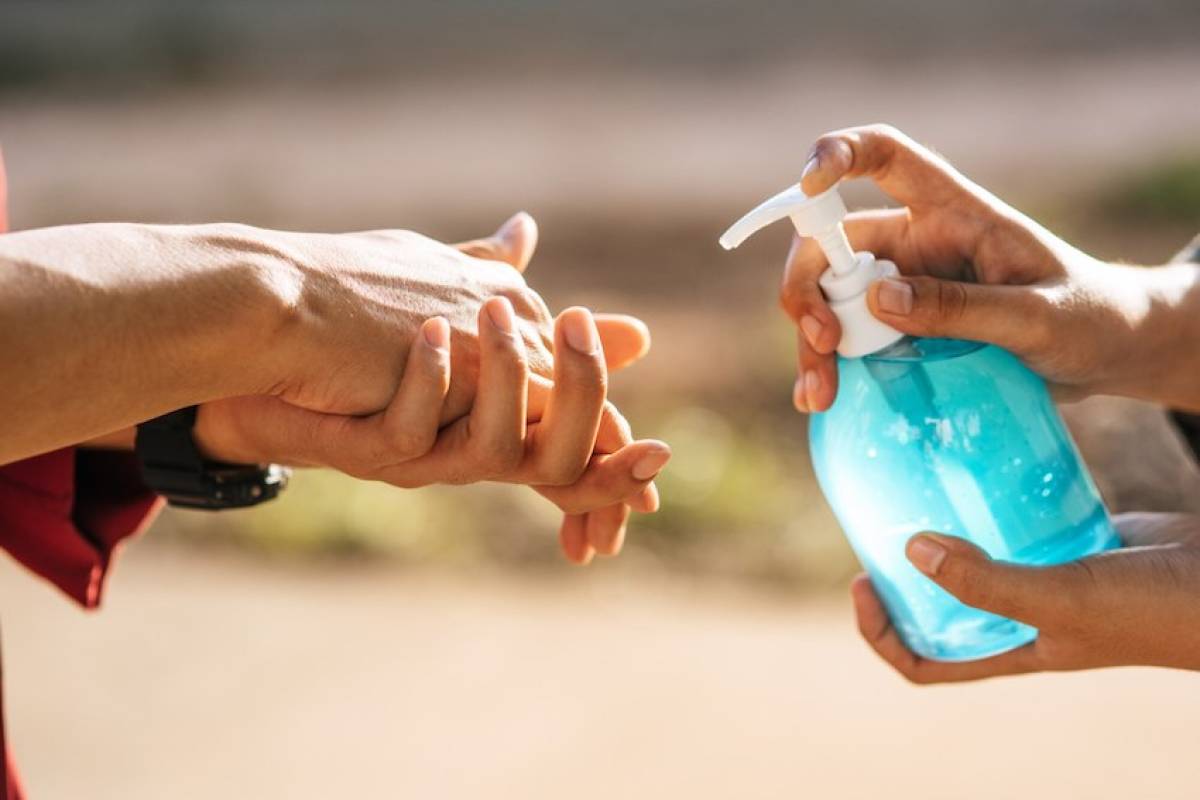Effective Hygiene Habits for the Whole Family This Season

Germs are everywhere, and it only takes one pesky virus going around to make people sick.
Your family can get sick from coming into contact with dirty surfaces like doorknobs, light switches, and countertops.
Or, germs and bacteria can be brought in on visitors' clothes and bodies, spreading the unwanted guests around your home and increasing the risk of colds, flues, diarrhea, and other illnesses.
Fortunately, there are some simple and effective ways your family can stay clean, hygienic, and help prevent unwanted germ spread at your home.
Simple Hygiene Habits for the Whole Family

Let’s jump right into some of the steps and tips for effective family hygiene and best practices for preventing unwanted germ spread at home:
1. Washing Hands Frequently
Washing hands frequently with soap and water can help prevent the spread of germs, infections, and illnesses.
The Centers for Disease Control and Prevention (CDC) recommends washing your hands with soap and water for at least 20 seconds. Washing hands is important for every member of the family, but it’s especially important for children.
When children are young, they can easily pick up germs from other people and places because they tend to touch surfaces and then put their fingers close to their faces.
Additionally, little ones tend to have a more fragile immune system, which makes them vulnerable to fast-spreading diseases.
To help kids get started on the right track early in life, teach them to wash their hands frequently. When washing hands, follow these basic tips:
- Wet your hands with clean running water.
- Apply soap and rub them together vigorously for at least 20 seconds, making sure you lather up all areas thoroughly. This includes under the nails, in between fingers, and palms.
- Remember not only to wash with soap but also rinse thoroughly under running water afterward.
- And it’s essential to dry your hands properly after washing so no germs stay behind on your skin. Remember that moisture is the best place for germs and bacteria to thrive.
It’s essential to wash your hands before and after eating, before going to the toilet, before and after changing diapers, after handling pets, before and after treating wounds, before and after having contact with sick family members, after sneezing, coughing, etc.
2. Clean the House
If a member of your family has been ill, it's especially important to keep the rest of your home as clean and sanitary as possible.
With that in mind, make sure you buy essential cleaning products to clean high-traffic areas of the home like the bathroom (especially the sink, toilet, tubs, etc.), bedroom (clean the linens), and kitchen (wash the dishes, clean the floors, etc.).
It's also important to clean high-touch areas like doorknobs, light switches, countertops, and electronics regularly with disinfectant wipes.
3. Use Hand Sanitizers to Clean Your Hands
Alcohol-based sanitizers are effective in reducing the risk of getting sick, and they’re also one of the easiest ways to prevent illness.
Sanitizer products kill germs on contact and can be used on the hands and skin. For example, for more clean hands, after washing them, you can also use sanitizers to disinfect your hands before treating any wounds or before eating.
The most effective alcohol-based sanitizers have at least 60% ethanol in them — the amount of alcohol needed to kill harmful bacteria quickly. So, when soap and water are not available, it’s better to use hand sanitizers.
4. Use Wet Wipes to Clean Highly Touched Areas
Wet wipes can be a great way to maintain hygiene throughout your home. With a quick pass of a wet wipe over door handles, light switches, and other hard-to-reach places in your house, you can maintain good hygiene.
Use wipes and teach your children to use them regularly.
5. Pay Special Attention to Body Hygiene
Everyone should be taking care of their body. This includes washing your hair and bathing regularly. It's also important to wear clean clothes and take care of your feet.
Some effective tips on how to keep your hygiene habits in check include:
- Wear clean clothes and wash them regularly to protect your body from bacteria and germs. And don’t wear clothes or underwear that are too tight since they won’t let air flow. For example, you need to buy cotton underwear since it is breathable and will allow enough airflow. Cotton clothes can keep you cool on warm days and will prevent bad odor since you will sweat less.
- Wash your hair regularly with a nutritious shampoo and conditioner.
- Take a bath regularly, at least twice a week so that you will have a clean body. Most importantly, you should teach your children how to wash each area of their body, including private parts.
6. Follow Oral Hygiene
Good oral hygiene is essential for the health of your teeth and gums.
- Brush your teeth twice a day: Brushing in the morning and before bed is essential because it cleans out food particles before they have time to break down into bacteria that cause cavities and gum disease.
- Floss daily: Flossing removes food particles from between the teeth that are missed by regular brushing alone. Use dental floss only to clean in between all your teeth.
- Schedule regular checkups: Your dentist can check for signs of decay or gum disease during routine visits every six months or so.
It's important to brush your teeth twice a day with toothpaste, floss daily, and visit the dentist at least once a year.
In Conclusion
We hope you’ve gained a better understanding of how to stay clean and hygienic. Incorporate the habits above into your routines and you’ll find yourself with a more happy and healthy family.




















